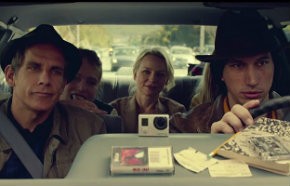Kids these days

In the film While We’re Young, Noah Baumbach probes the conflict between the Gen X and millennial generations while exploring the zeitgeist of the digital age.
The plot is a love story between two couples. Gen-Xers Josh (Ben Stiller) and Cornelia (Naomi Watts), in their forties, meet winsome millennials Jamie (Adam Driver) and Darby (Amanda Seyfried), who, like a lot of New Yorkers in their creative circle, are just starting to have babies. After struggling with infertility, Josh and Cornelia have accepted a childfree life. As their friends peel off into baby music classes and nighttime feeding schedules, Josh and Cornelia are left behind.
When they meet Jamie and Darby, they quickly fall in love, but not in the way we might expect. There’s some mild flirtation, but no partner swapping or sexual tension. Instead, Josh and Cornelia, who feel trapped by their pursuit of success, are enamored of everything the younger couple does. While Josh and Cornelia have spent decades cultivating success and “good taste,” Darby and Jamie are all about “process.” They mix pop culture with high art and embrace hip-hop, old cartoons, Mozart, and slasher films in an alluring pastiche. For the younger couple, experience matters more than content or results.




